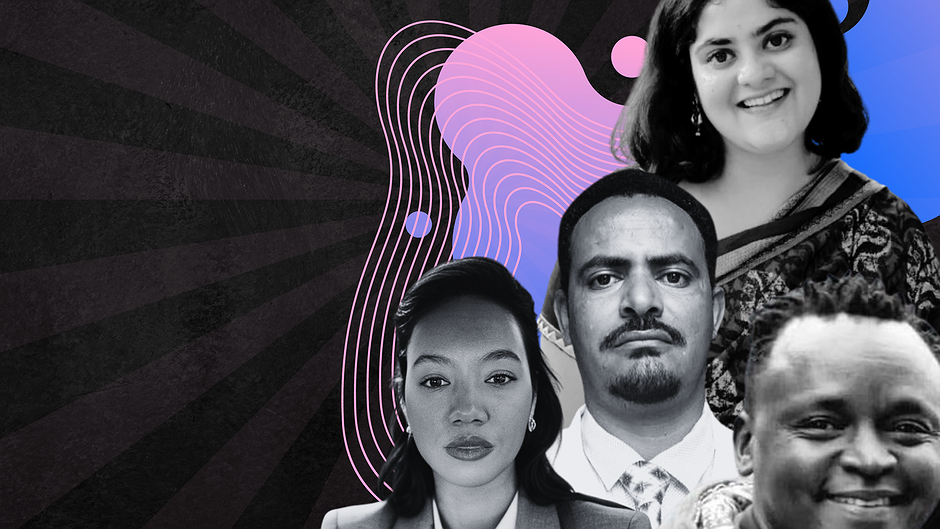
The Devastating Impact of Internet Shutdowns on Vulnerable Groups
Have you ever asked yourself how the internet shapes your life?
It's a question we rarely pause to consider, yet the internet has become so woven into our everyday lives. From education and communication to commerce and entertainment, the internet facilitates a vast array of activities that enrich our lives. It connects us with family and friends across the globe, empowers us with information at our fingertips, and provides countless opportunities for learning and growth.
But what happens when this vital lifeline is suddenly cut off?
Internet shutdowns can have a devastating impact on individuals and communities. While these disruptions may appear temporary, their impact extends far beyond the time the internet is offline, leaving behind devastating consequences for entire populations, particularly for vulnerable groups.
Widening the Gender Gap:
Internet shutdowns disproportionately harm women, exacerbating existing inequalities and limiting their ability to participate in society. For women stepping outside their familiar circles, a constant internet connection can be a powerful tool for security and support when navigating an unfamiliar environment. The internet also empowers women to access information about their rights, health resources, and other opportunities.
In this video, Radhika Jhalani, legal counsel at the Software Freedom Law Center, explained some of the real-life impact of shutdowns on women and girls in India.
“When these shutdowns happen, it reduces your mobility. A woman, if you ask, will never, ever go out to do protests if there's no internet", she explained.
“Especially in conflict regions where there are long-term internet shutdowns. Women who are working outside those regions will not feel safe because they are not able to contact their families", she added.
Disrupting Humanitarian Aid Delivery:
During conflicts or natural disasters, when people are most vulnerable, the lack of internet access creates a critical roadblock in the delivery of humanitarian aid, hinders the coordination of relief efforts, and prevents people from receiving crucial information about available assistance.
Eden Kassa, co-founder of Legacy Tigray and program manager for HPN4Tigray, described the impact of the continuous internet shutdown in Tigray as “devastating”.
“Shutting down an internet connection can really lead to devastating results that we're seeing in Tigray right now and continue to see”, she said. “The Ethiopian government should not be allowed to use telecommunication and internet access as a means of warfare or to continue to hide crimes that have been committed in Tigray.” she continues.
Exacerbating the Challenges Faced by People with Disabilities:
While shutdowns impact everyone, people already facing discrimination such as people with disabilities are especially liable to feel their negative effects. Many rely on online platforms for communication, education, and accessing essential services.
During a shutdown, Mohammed Kimbugwe, a disability rights advocate, was unable to use the transcription app he relied on for daily life and education. Mohammed’s testimony exemplifies how shutdowns can further isolate individuals with disabilities, denying them access to the support they need.
Impeding Access to Healthcare:
There are different forms in which internet shutdowns can pose a serious threat to public health. First, when internet access is disrupted, so is access to life-saving information such as critical updates on viruses and public health measures. For example, during the COVID-19 pandemic, government-imposed shutdowns in regions like Kashmir and Jammu delayed access to essential healthcare and hampered efforts to contain the spread of the disease. The incident underscores how shutdowns can jeopardise lives and undermine public health initiatives.
Second, internet shutdowns disrupt the communication system and health care facilities services. Furthermore, prolonged internet shutdowns can leave critical medical equipment outdated and potentially inoperable. This can have serious implications for healthcare delivery, particularly in regions with limited resources.
In the following video, a doctor’s testimony reveals the hidden costs of Tigray's continuous internet shutdown in the healthcare sector.
These four case studies offer a glimpse into the devastating consequences of internet shutdowns. Their impact extends far beyond the immediate disruption of access, leaving lasting social, economic, and psychological scars on individuals and communities.
To learn more, join our course “Advocating and Campaigning Against Internet Shutdowns” and explore the impact of shutdowns across different sectors and geographies.
Related courses

90 mins
 School of Data
School of Data
90 mins
 School of Data
School of Data Rory Peck Trust
Rory Peck Trust
50 mins
 Rory Peck Trust
Rory Peck Trust
Blogs

6 useful resources for journalists covering Covid-19
With a global pandemic spreading throughout the world, journalists are under increasing pressure to report accurate and relevant news for the masses. Often when covering a crisis, those on the reporting frontlines compromise their physical safety and mental health. To show some solidarity, the Advocacy Assembly team curated a list of useful resources from other organisations leading the way on this.

5 ways to find data for your next story
Data journalism is fast becoming a big trend in newsrooms across the globe. However, data isn’t always so easy to find. Here are five ways to get data for your next article.



